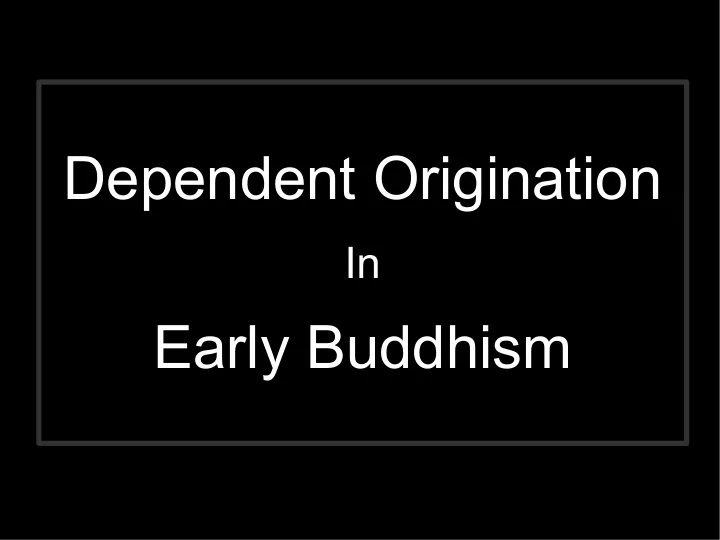

Dependent Origination In Early Buddhism
Early Buddhist Texts ● Source of Buddhism ● Giver of meaning ● Gold standard ● 4 Nikāyas/Āgamas
Birch bark manuscript
DO in history ● DO in EBTs ● DO in Abhidhamma ● DO in modern times
Outline of Dependent Origination Ignorance > willed acts > consciousness > name and form > the six senses > sense impressions > sensations > craving > taking up > life > birth > old age and death
DO background ● Ignorance > suffering ● A universal principle ● A profound teaching ● A rich teaching ● Seeing it = streamentry
Ignorance leads to suffering
Universal principle “Whether Buddhas arise or not, this law of nature persists, this regularity of natural principles, this invariance of natural principles, specific conditionality.” (SN 12.20)
Profound teaching Venerable Ānanda: “It’s incredible, sir, it’s amazing, in that this dependent origination is deep and appears deep, yet to me it seems as plain as can be.”
“This dependent origination is deep and appears deep. It is because of not understanding and not penetrating this teaching that this population has become tangled like string, knotted like a ball of thread, and matted like rushes and reeds, and it doesn’t escape the places of loss, the bad places, the underworld, transmigration.” (DN 15)
A rich teaching ● Rebirth ● Kamma ● Five aggregates ● Process of perception ● Six senses
A rich teaching ● Three characteristics ● Importance of death ● Ignorance/knowledge ● Four noble truths
Streamentry “One who sees dependent origination sees the Teaching. One who sees the Teaching sees dependent origination.” (MN 28)
Streamentry “And what is the noble method ( ñāya ) that they have clearly seen and comprehended with wisdom? A noble disciple properly attends to dependent origination ...” (SN 55.28)
Recommend
More recommend